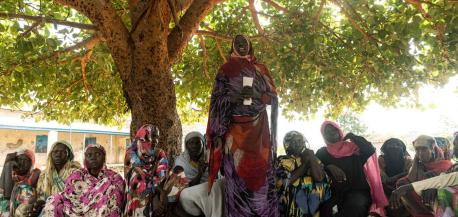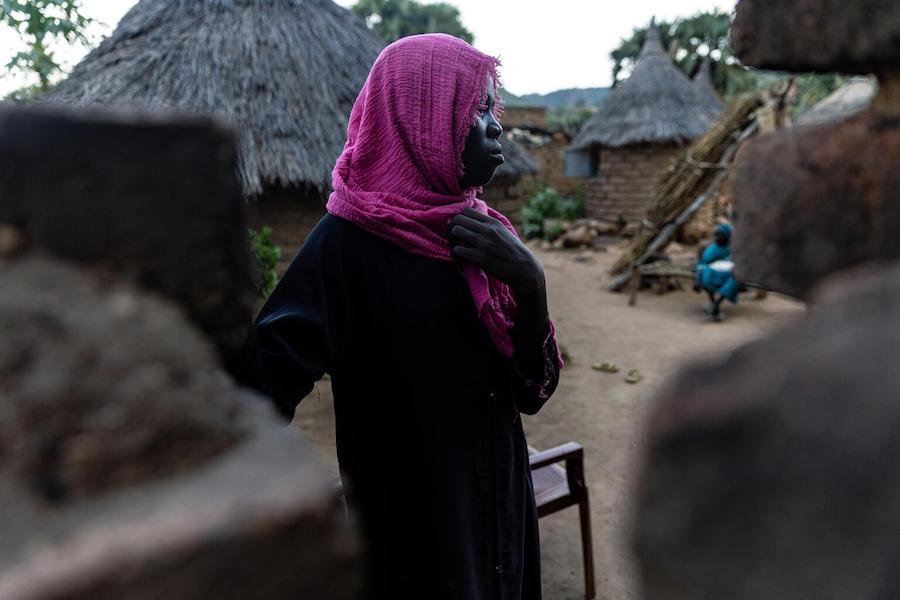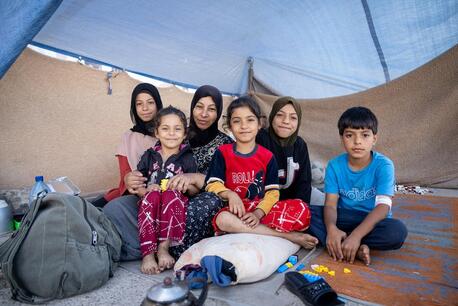
What Is FGM?
UNICEF is working to eliminate female genital mutilation, a cruel and unnecessary practice.
An internationally condemned human rights violation, female genital mutilation (FGM) harms girls' bodies and their futures. Over 230 million girls and women alive today have undergone the inhumane practice, a form of ritualized gender-based violence. Most are harmed before their 15th birthday.
FGM is defined as the partial or total removal of the external female genitalia, or other injury to female genitals for non-medical reasons. It is an excruciatingly painful procedure that involves life-threatening health risks and long-term physical and psychological complications.
Some 4.4 million girls are at risk of FGM in 2024, UN Secretary-General António Guterres warned. That's more than 12,000 cases every day. "We need urgent investment to reach the target set in the Sustainable Development Goals of eliminating female genital mutilation by 2030," he said. "And we need to amplify the voices of survivors and support their efforts to reclaim their lives, based on their bodily autonomy."
Learn the facts about female genital mutilation
FGM violates the human rights of girls and women
Rooted in gender inequality and power imbalances, FGM has been performed on infants, girls and women in at least 31 countries across three continents; more than half of those who have been subjected live in Egypt, Ethiopia and Indonesia. Diaspora communities sometimes bring the custom with them when they migrate.
An alarming trend is the growing medicalization of the practice. Around one in four girls and women who have been harmed — 52 million — were subjected to FGM at the hands of health professionals, despite the fact that there are no health benefits. The proportion is twice as high among adolescents.
UNICEF-trained social workers stand up for vulnerable girls who are in danger of being subjected to FGM. UNICEF also provides medical care for girls who have been harmed and traumatized by FGM.

UNICEF and the United Nations Population Fund are working to end FGM
UNICEF and the United Nations Population Fund (UNFPA) are working together to put a stop to FGM once and for all.
And while girls today are one-third less likely to be subjected to FGM compared to three decades ago, the pace of progress remains slow — lagging behind population growth, especially in places where FGM is most common, and far off-pace to meet the global target of eliminating FGM by 2030.
Changing gender and social norms that encourage FGM is critical. UNICEF and UNFPA's joint program engages families, communities, institutions and policymakers to act as agents of social change to promote the elimination of FGM.
At UNICEF-supported community awareness sessions, women share their experiences and agree to stand up against cultural pressure to subject their daughters to the practice. Youth advocates like 15-year-old Fatima in Sudan's South Kordofan State, whose family condemns FGM, explain the dangers to their classmates and members of their community.
"I believe FGM should stop," said Fatima. "Girls in my school that have been subjected to FGM have very painful periods. It is bad."
Men and boys play an important role in awareness raising too, along with enabling safe environments for girls and women, and — most importantly — detecting, reporting and preventing FGM cases.
In the past five years, the UNICEF-UNFPA joint program has supported more than 3,000 initiatives where men and boys actively advocate to bring an end to the practice. Efforts to change the narrative are making an impact: significant opposition to FGM among boys and men is evident in countries such as Eritrea, Ethiopia, Guinea and Sudan.
It's time to break the cycle of violence and eliminate female genital mutilation. Please donate today.
HOW TO HELP
There are many ways to make a difference
War, famine, poverty, natural disasters — threats to the world's children keep coming. But UNICEF won't stop working to keep children healthy and safe.
UNICEF works in over 190 countries and territories — more places than any other children's organization. UNICEF has the world's largest humanitarian warehouse and, when disaster strikes, can get supplies almost anywhere within 72 hours. Constantly innovating, always advocating for a better world for children, UNICEF works to ensure that every child can grow up healthy, educated, protected and respected.
Would you like to help give all children the opportunity to reach their full potential? There are many ways to get involved.




